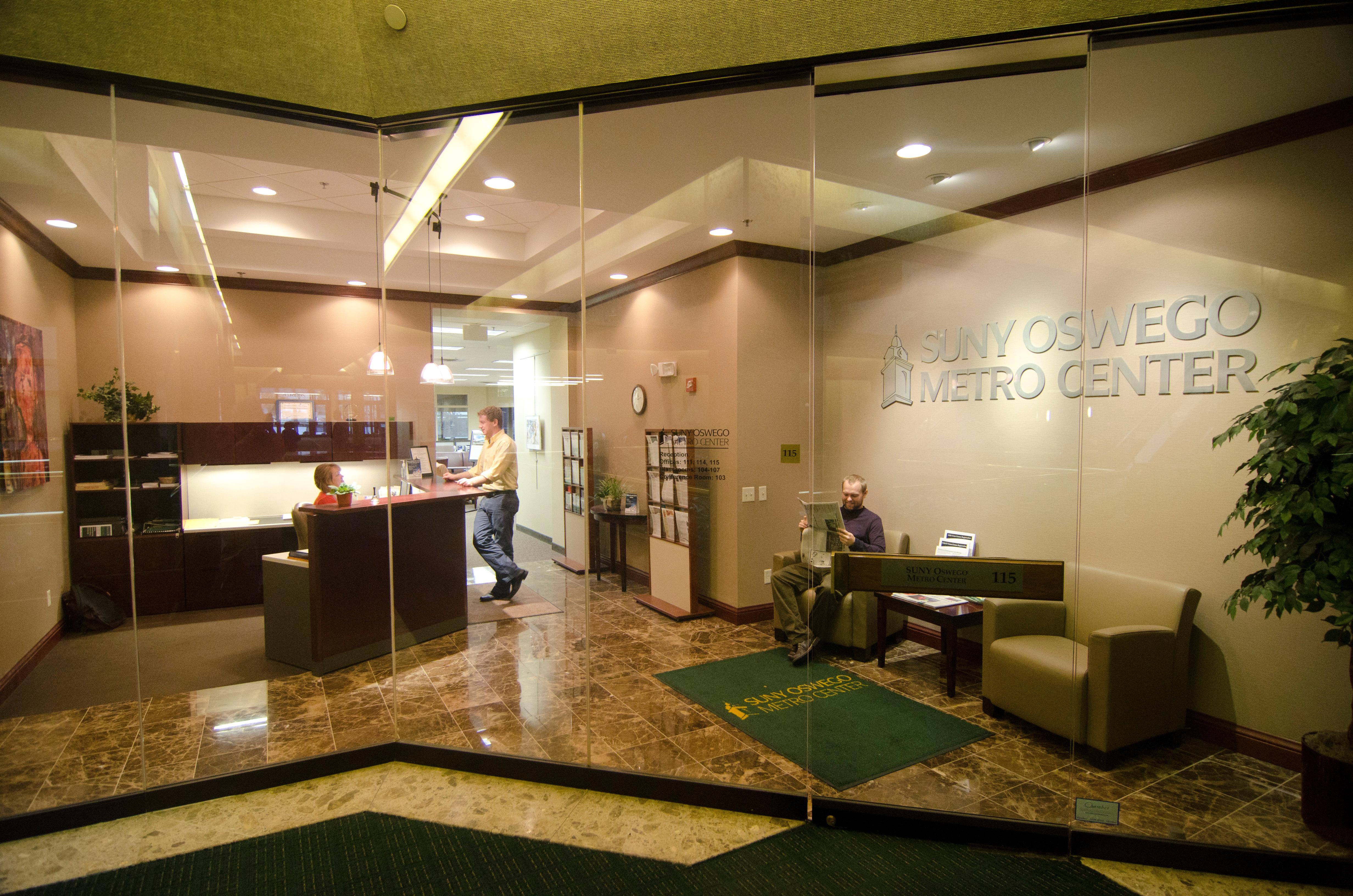The new SUNY Labs to Jobs Consortium will establish a “Smart Health” Biomedical and Health Informatics Research Lab and a Biomedical Instrumentation Teaching Lab for SUNY Oswego as well as provide additional equipment for the college’s Advanced Wireless Systems Research Center.
Gov. Andrew Cuomo last week announced the creation of the five-campus consortium with $18 million in support from the fourth round of the NY SUNY 2020 Challenge Grant program. Onondaga Community College leads the consortium, which includes SUNY Oswego, Upstate Medical University, SUNY College of Environmental Science and Forestry, and Morrisville State College.
Together they will share seven advanced labs located across the region. The labs will provide students with spaces that simulate various workplaces and house workforce development training in fields such as medicine, engineering and business.
The initiative builds on existing partnerships among these institutions that started as a result of round two NY SUNY 2020 funding, which established the Institute for Environmental Health and Environmental Medicine.
“We are finding that the capacity for innovation when our institutions’ professors and researchers join forces is just astounding,” said SUNY Oswego President Deborah F. Stanley. “In the Labs to Jobs Consortium, we will be working together and with business partners to lift the health and vitality of our region.”
New SUNY Oswego facilities
SUNY Oswego’s campuses in Oswego and Syracuse will have two of the consortium’s new labs, costing just over $2 million. The $1.42 million research lab will be in the SUNY Oswego Metro Center in Syracuse. The $230,000 teaching lab will be in the college’s electrical and computer engineering department in the Shineman Center for Science, Engineering and Innovation on the college’s main campus in Oswego. The Oswego campus is also home to the wireless research center, which will receive $360,000 in new equipment.
The labs and new state-of-the-art equipment are expected to be fully operational by next fall semester.
The research lab will support the college’s forthcoming master’s degree in biomedical and health informatics, directed by computer science and software engineering assistant professor Isabelle Bichindaritz. Biomedical informatics is an interdisciplinary field that studies and uses biomedical data, information and knowledge to improve human health.
This lab will address the revolutionary shifts the health care system is now undergoing due, for instance, to globally connected digital health networks and the availability of “big data.” It will be used to train students and professionals to apply the most advanced information technology to develop solutions in health care, health services and health research.
It will feature advanced and innovative technology in a suite of professional stations, including one for telehealth to distantly interact with patients in the clinic and the home, one for the “intelligent hospital” with patient monitoring and alert systems that integrate patient data from different devices and hospital units, and a demo space for such sophisticated technology as wearable and mobile health devices and health-related robotics.
“We live at an exciting time in history when technology is ready to meet the challenge of improving the quality of health care and population health outcomes,” Bichindaritz said. “Information technology, by connecting patients, health care professionals, care givers, and big data information sources, makes possible the extraordinary shift to a model of medicine based on prevention and health maintenance more than disease management, and I am delighted that our students will be actors of this change.”
The Biomedical Instrumentation Teaching Lab will feature 12 workstations, at which students can work in groups of two, learning basic electrical engineering fundamentals and applying those skills to the operation, design and construction of biomedical instruments. In this lab, for example, a device developer could test a wearable sensor that is monitoring the physiological and biochemical conditions of the human body and wirelessly transmitting data to both nearby and remote sites.
“Whether these devices transmit data on infant breathing, heart-rate and movement patterns from a nursery to a parent’s bedroom, or from a patient’s bedside to a medical facility hundreds of miles away, revolutionary developments in this arena are changing the face of medical monitoring,” said Rachid Manseur, professor and chair of electrical and computer engineering.
The funds for the wireless research center will upgrade its existing facilities to accommodate the 5G mobile network and provide additional wireless sensor and signal processing measurement equipment.
SUNY Chancellor Nancy Zimpher congratulated the five Central New York campuses that received support through the governor’s NY SUNY 2020 program. “NY SUNY 2020 is high-impact, ground-breaking legislation that continues to support innovation, learning, and workforce training for our students while further strengthening SUNY’s capacity to drive economic development in communities throughout New York state,” she said.




